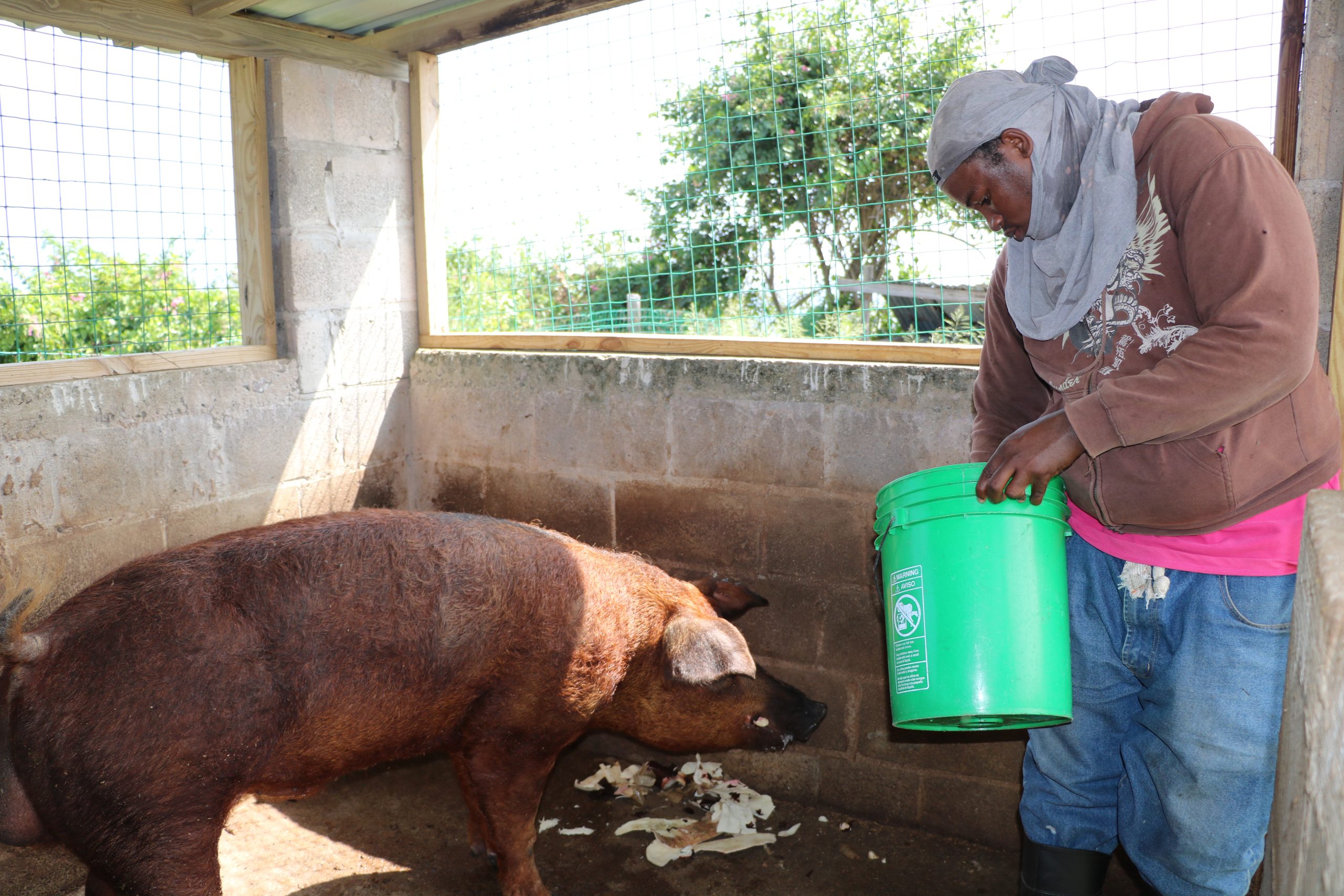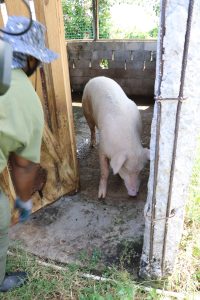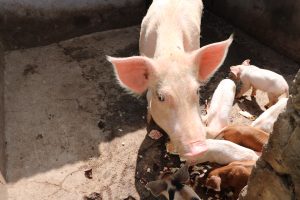There’s money to be made in pig farming, Nevis Livestock Extension Officer Claxton says

NIA CHARLESTOWN NEVIS (November 04, 2021) — “There’s a lot of money to be made in pig production,” so says Mr. Rohan Claxton, Livestock Extension Officer with responsibility for Production on the Maddens Stock Farm, in the Department of Agriculture on Nevis.

He made the comment while encouraging farmers on the island to use a different system for their pig farming, as the department continues to ensure food security on Nevis.
“We are encouraging farmers to adapt the new methods of farming, to invest in better pen construction and the new breeds that the department is making available, and to implement better sanitation and hygiene practices.
“We want people to get away from the backyard style, one pig in a pen and keeping it for a year before slaughtering,” he said.
According to Mr. Claxton, the department has introduced the landrace breed of pigs and brought back the purebred Duroc pig. They are also in the process of constructing new pens for the pigs at the stock farm.
“The landrace is very prolific. So far, our average litter size is 12. Survival, we have a 10 percent mortality rate which means we lose about two, three sometimes.
“We are presently constructing a new pig unit which will have the necessary structure in place to save the piglets. We have a design for foreign crates and we are going to set a proper managing programme to wean the piglets on time, and then we sell pigs for distribution,” he explained.
The Livestock Extension Officer also spoke of the cost cutting feeding practices which have been introduced for the pig breeding programme.

“Maybe once a week we collect the by-products of the Agro-processing plant. The peelings from the mango, the cassava, the guavas, the five finger and we use them to feed the pigs. That helps with their diet. They are high in protein also.
“Apart from giving concentrates which is almost 80 percent of what we do. We feed the concentrates – the sow ration and the pig grower – but to reduce cost we also feed the spent hops and the Brewers grains which is a by-product of the Carib Brewery and a waste product but it is very high in crude protein to help with the growth and the performance of the pigs,” he said.
Mr. Claxton noted that in the past pig farmers were deterred by the importation of pork from Brazil. However, with the changes being implemented, the Department of Agriculture is hoping to counter importation with quality pork and better prices.
